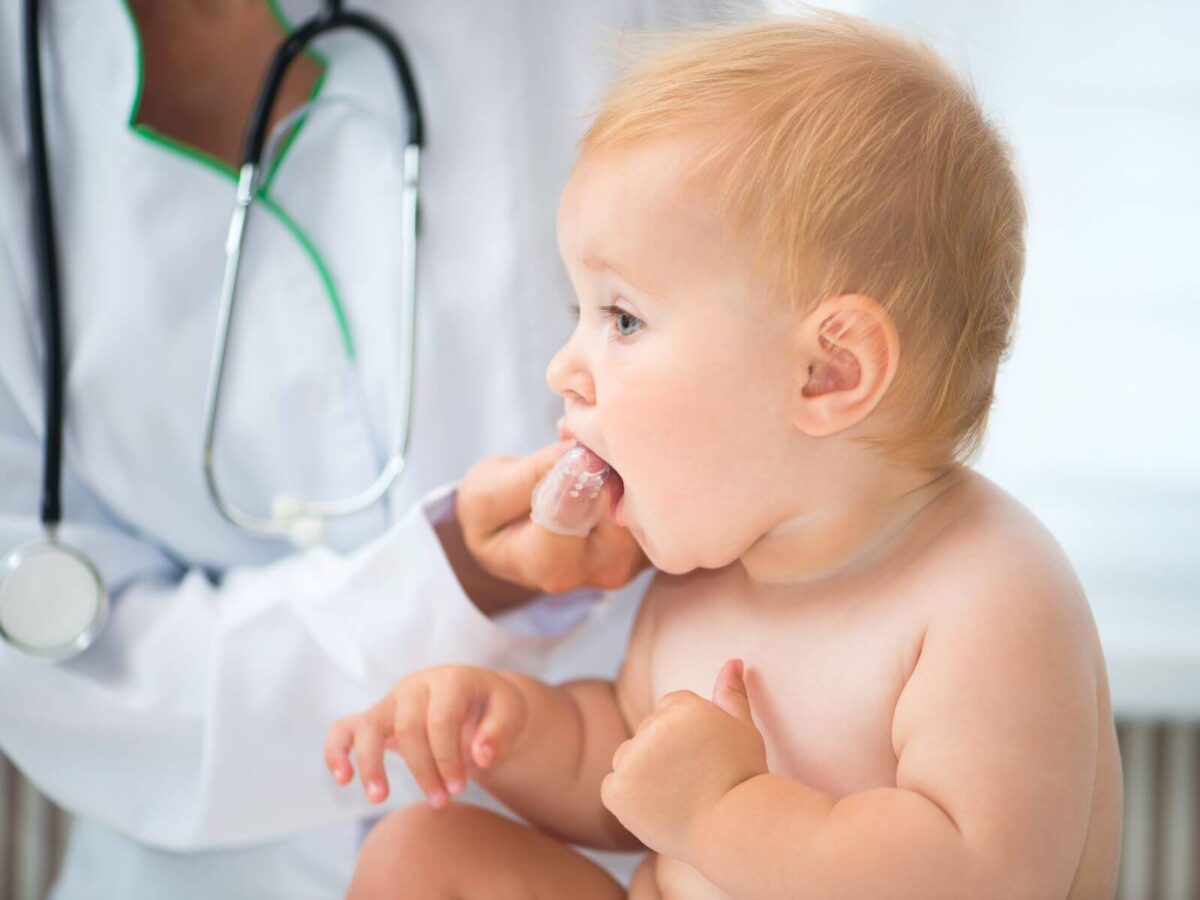Blog
Dental hygiene tips for healthy teeth & gums

What To Do If A Baby Tooth Is Knocked Out
A knocked-out baby tooth can be a scary experience for both parents and children, but staying calm and knowing what steps to take can make a big difference. Children are often energetic and active, which means accidents can happen when you least expect them. Whether it’s from a fall, a bump, or a knock during playtime, knowing how to handle pediatric dental emergencies like this is crucial for parents.
Immediate Steps When a Baby Tooth is Knocked Out
One question that may arise is what should be done when a baby’s tooth is knocked out? Unlike other permanent teeth which may be replaced and re-implanted, baby teeth are not the same. Here’s what to do:
- Stay calm: Your child may be scared or in pain and therefore you should not alarm or soothe them because they need to feel safe.
- Find the tooth: If possible take the tooth and look for any sign of harm either on the tooth or in the mouth of the child.
- Stop the bleeding: To control the bleeding apply slight pressure onthe area of the affected gum using a cloth or gauze material.
- Rinse your child’s mouth: Rinse with water and do not apply pressure or touch the tooth socket in any way.
- Comfort your child: Make sure to assure and calm down your child. This has to be a stressful event for them in general, so it is crucial to achieve a sense of safety.
Should You Try to Reinsert the Tooth?
For the baby teeth, one should not attempt to replant a knocked-out tooth as one is supposed to do for the permanent teeth. The teeth that babies have are for temporary use only and should come out to pave the way for the adult permanent teeth and reinserting them may harm the young permanent tooth that is still growing beneath the gum. In case you have some doubts on the state of your child’s teeth following an accident, you should go to a Calallen Pediatric Dentist for an examination.
When to See a Dentist?
It is always recommended to consult a specialist after any sort of dental injury has occurred. Although the tooth could be a baby tooth, your child has to see the dentist to avoid infractions of other teeth and gums.
Some cases to watch out for:
- Damage to other teeth: Sometimes the injury can leave an impact on other teeth even though these are not missing and have not been chipped.
- Injuries to the gums or jaw: In case your child seems to be in much pain, or you notice swelling goes on, it is advisable to seek the services of a dentist.
- Discomfort or prolonged bleeding: While applying pressure be gentle do not apply pressure for more than 10 minutes; if the bleeding does not stop or your child is still in pain then visit a dentist immediately.
At Calallen Dental & Orthodontics, dentists are experienced in handling pediatric dental emergencies, ensuring that your child’s dental health is properly cared for.
How to Manage Pain at Home
After the initial shock and visit to the dentist, your child may still feel some discomfort. You can manage minor pain at home with these tips:
- Cold compress: Apply an ice pack wrapped in a cloth to the cheek area where the tooth was knocked out. This can reduce swelling and numb the pain.
- Pain relief: Over-the-counter pain relievers, such as children’s ibuprofen, can help manage discomfort. Always check the dosage with your healthcare provider.
- Soft foods: Feed your child soft foods that are easy to chew, such as mashed potatoes, yogurt, or applesauce, to avoid irritating the area.
Long-term Care After a Knocked-Out Tooth
The good news is that a knocked-out baby tooth usually doesn’t cause long-term problems, as long as the area heals properly. It’s important to follow any advice from your dentist regarding care after the incident. Monitoring your child’s dental health after trauma is essential because even though baby teeth will be replaced, the injury could affect the growth of permanent teeth. Calallen Pediatric Dentist services can provide guidance and monitoring to ensure everything is on track for your child’s future dental development.
How to Prevent Future Incidents
While accidents happen, there are steps you can take to help prevent dental injuries in the future:
- Mouthguards: If your child is engaged in sports, it will be useful to wear a mouthguard since it reduces the probability of suffering from dental injuries.
- Supervision during playtime: For children below three years of age, proper supervision should be maintained especially when they are at play especially when climbing or moving around on concrete surfaces.
- Safety-proof your home: Check your house to see if it contains any triggers that may cause harm to the baby by perhaps causing an accident whereby he/she gets injured or falling off a slippery surface.
Why Choosing a Pediatric Dentist Matters
Pediatric dentistry is the best to visit when your child develops a dental problem at some point in their life. Calallen Dental & Orthodontics is in a strategic position to tackle pediatric dental emergencies in a manner that relieves children’s anxiety. General dentists are also qualified to address children’s specific requirements, making the visit more pleasant for them.
Final Thoughts
A knocked-out baby tooth can be alarming, but with the right approach, you can help your child manage the situation calmly and effectively. Remember to consult a Calallen Pediatric Dentist or visit Calallen Dental & Orthodontics for professional advice. Always follow the dentist’s instructions for proper aftercare, and your child’s dental health should continue to develop as normal.
Taking these steps not only helps your child in the moment but also ensures their dental health is protected in the future. By being prepared for pediatric dental emergencies, you can confidently handle whatever comes your way, helping to ensure your child’s smile stays bright and healthy.


